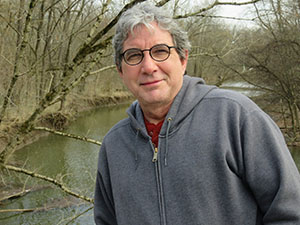HEAD ABOVE WATER
★ ★ ★ ★
DATING AFTER THE REVOLUTION

Image by Ralph Renter
By Tim Clark
Traipsing through the landscape of the late seventies and early eighties it was difficult to understand the workings of human relationships. The world was changing, relationships were changing, the sexual revolution, women’s liberation, and the general social upheaval of the baby boom generation, left the youngest boomers (me, for example) with doubts about the delicate balance between men and women.
Honestly, it was terrifying, tumultuous, and disorienting. We had been raised on Rawhide, Gunsmoke, Mannix, strong, silent types, bulldozing through obstacles, smacking hell out of difficulties, overcoming impossible odds, and “the chicks” couldn’t resist.
An era of openness and equality came across, “Who’s the Boss,” and “Designing Women” changed the assignment of roles women were strong and independent, and the era of communication was born. Dating advice was a constant stream of shared hopes and dreams, you had to have goals, and you were encouraged to talk about them. Dating was competitive and I was never any good at it.
“I’d like to get through this date without making a fool of myself. Last night, I dreamed I was running as fast as I could, and something was chasing me, something awful, I don’t know what it was, but it was terrible. And I wasn’t really able to run, my legs seemed to be made out of lead, and I could hardly pick them up, and it was getting closer, and I couldn’t see it, but I knew it was there. Right before it caught me, I woke up. I’m not usually all that happy about waking up, but I was then.”
That wasn’t the kind of dream they were looking for. People in those days had a desire for concrete, absolute achievements.
We had to express our feelings. When insecurity and self-doubt was the steering force in your life, the game changed. Nobody wanted to spend time with a person whose overriding characteristic was anxiety. I could have gone on for the whole evening about the crushing weight of reality, and hiding behind a series of thrift store novels, televised sports and a Smith Corona Classic Royal typewriter from Bob’s House of Appliances. It was only twelve dollars, but it didn’t have a letter D key, and I had to cover it with athletic tape. I had planned on writing an artificial history of the world. It was all mapped out, where a small group of indentured servants built the whole thing in the 15th century, and Benedictine monks toiling away with long quills and little pots of ink made up everything that happened pre-dark ages. I just couldn’t find the words, though.
Oddly enough, that wasn’t the kind of hopes and dreams late twentieth century girls were looking for. They were expecting something involving monetary success, and financial stability. Reagan was president, and the pendulum of public opinion was swinging from laissez faire acceptance to responsible employment and upward mobility, Ho Chi Minh sandals gave way to bright white leather tennis shoes with the laces untied and hanging loose.
It was confusing, and many of us were just sad casualties of the untrammeled change.
You had to learn to cover that with false bravado. A phony macho mask of thin artifice, illusory armor that creaked and groaned under the weight of obsolescence. I never knew where I stood with anybody. Sometimes, in the middle of a date I would forget which act I was playing. Switching from Joe, Clint Eastwood’s disreputable, yet charming con artist character in A Fist Full of Dollars or John Wayne’s manly, yet sensitive McClintock, based loosely on Shakespeare’s Taming of the Shrew, midway through the order for pizza and beer. Changing so abruptly was jarring and hard on conversation. Often my date would look at me with an air of puzzled disbelief or unconcealed revulsion, and I would have to turn on some Ward Cleaver, the dad in Leave it to Beaver, the most patient, understanding person in television history.
Threads began to cross, and sentences would twist into collections of unconnected words.
“Abort, abort, abort,” my brain would begin to scream.
I had to do a hard reboot and log in as a different user. This was the early eighties, and those words had no meaning. It was a new field, and it could be treacherous, I was a pioneer, but also a prisoner.
Sometimes it took so long for my processors to reconnect that my date would leave, and I would be stuck with a medium pizza, a pitcher of beer, and a cast of thousands.
It was probably lucky I found my wife. I think about the days when I had to survive on my wits, a single man in a wilderness of single women. Every new encounter was a potential disaster, second dates were even more difficult than the first. You had used all the A material and had to scramble for something to talk about. The problem was nobody knew what they wanted, and wandered around hoping they found it, accidentally. And I guess I did.
In all fairness, I told this same story, kind of, to a co-worker, several years ago, and he told me, “you would say that, you’re one a baby boomer, and everything is always about you. It’s always been like that, and it always will be.”
Tell that to Rick Blaine, Humphrey Bogart’s stoic, irresistible character in Casablanca, I thought.

Tim Clark lives in Columbus, OH. He is an employee, a husband, a father and a blogger. You can see his blog here, Life Explained. He loves classic rock, and talks about it too often. He loves to write and read, and he doesn’t mind coffee and a little bourbon, either.
























Thanks for sharing. I did 2 groups per week at a men’s halfway house for addicts. Many of them found a new way, thankfully, but I learned that our society is not nurturing for men or women.
Lisette